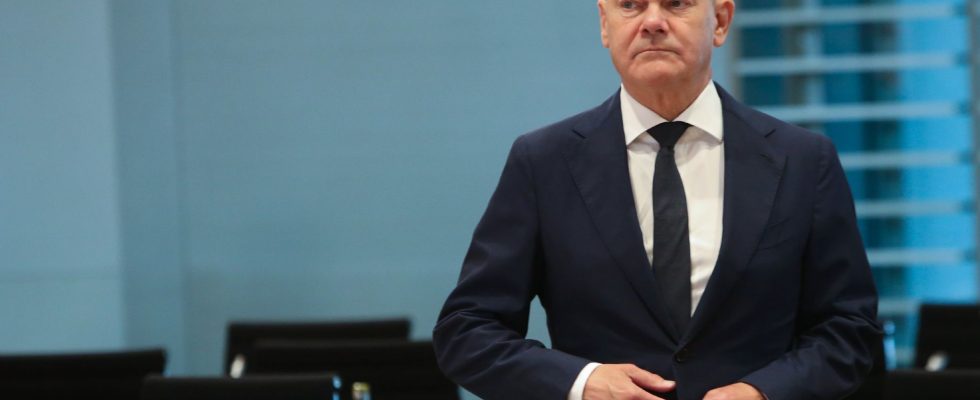Hard blow for Olaf Scholz. The German government, already undermined by divisions, appears on Monday more weakened than ever after a severe defeat in two regional elections which confirmed the surge of the far right.
The verdict of the polls is “disastrous” for the coalition, underlines the weekly Der Spiegelat the end of the ballots organized on Sunday October 8 in Bavaria (south), the richest German state, as well as in Hesse (west) where Frankfurt, the headquarters of the European Central Bank (ECB), is located.
In these conservative bastions, the chancellor’s Social Democratic Party (SPD) does not reach 9%. The rest of the coalition is not spared: the liberals of the FDP fall below 5% in Hesse, while the Greens record a more moderate decline. Mid-term, the government of Olaf Scholz was thus sanctioned in elections where the population’s concern over the industrial crisis and the resurgence of the migration issue played a central role.
Progression of the far right
“The loss of support is so obvious” that the government “will be forced to review its current course,” assures Der Spiegel. A self-criticism initiated by the leader of the SPD Lars Klingbeil who sees in the defeat “a signal to the three parties” to encourage them “to resolve more quickly” the Germans’ problems.
The clear progress of the AfD in these two Länder, which embody a prosperous and confident Germany, is a shock. “We can no longer say that (the AfD) is a party exclusively strong in the east” of the country, where the regions of the former GDR are located, often economically disadvantaged, points out the newspaper Süddeutsche Zeitung. AfD co-leader Alice Weidel interpreted the results as “a punishment” for the government and “a vote for change”. “We are on the right track,” she said.
This anti-immigration party, which also criticizes climate protection measures as high prices and constraints, confirms its surge in national polls. Two years before the next regular legislative elections, it currently has between 20 and 22% of voting intentions, behind the right-wing Christian Democratic Union (CDU).
The AfD took advantage of the fact that the campaign largely focused on criticism of the coalition in power since December 2021, undermined by incessant quarrels. Fears of a new migration crisis, like that of 2015, are also at the top of voters’ concerns, according to opinion studies, due to an increase in arrivals of asylum seekers in recent months.
“Very disappointing” performance
In Hesse, Interior Minister Nancy Faeser, who led the social democratic list, suffered a bitter setback: the SPD (15%) came behind the AfD (around 18.5%), neck and neck for the third place with the Greens, current junior ally in the regional government.
Olaf Scholz’s party is far behind the Christian Democratic Union (CDU) led by an unknown person, Boris Rhein, who won 34.2%, a clear increase compared to 2018 (27%).” Unfortunately, we have not failed to impose ourselves with our themes. It’s a very disappointing performance”, admitted the minister, a heavyweight in the government, who intends, despite criticism from the opposition, to keep her portfolio.
In Bavaria, the thunderous head of government Markus Söder certainly won, but with a slightly lower result (36.4 to 36.6%) and the worst in more than 70 years for his Christian Social Union (CSU) party. , regional avatar of the CDU.
The person concerned said he was “satisfied” with the result, which allows him to constitute “a stable and strong majority” with his current partner, the Free Voters (Freie Wähler), a very conservative party established in the countryside which would collect around 15%. The AfD (around 16%) would come in second position here too, ahead of the Greens (14.6 to 14.9), while the SPD, chronically weak in this Land, is collapsing a little further (around 8%).
